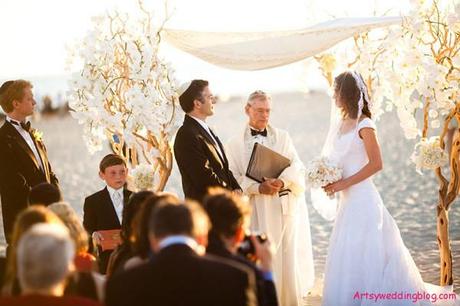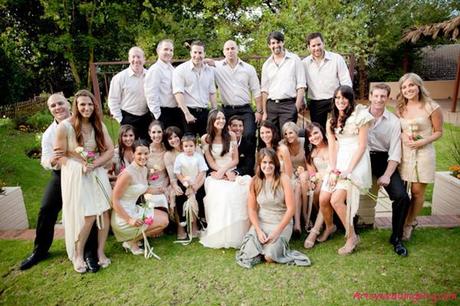Having a wedding coincide with another major holiday is often tempting. This can work if your family usually gets together anyway at this time, or if people coming from out of town need a few extra days’ cushion and the holiday provides some extra time off work.

On the other hand, sometimes people resent having their precious vacation time eaten up with a social obligation — especially if the date falls during a frequent-flier blackout period. If they must sacrifice, however, they may expect the gracious host to make sure there is plenty to keep them entertained. In cases like these, you could find yourself playing social director for several days before and after the wedding. This can be both time consuming and exhausting.

Another drawback to piggybacking your wedding with a holiday is cost. Think how much you would charge to work on a holiday. The service staff feels the same way.
In cities with a large Jewish population, such as New York or Los Angeles, if you’re willing to get married on a Friday night as opposed to Saturday after sunset, you stand a better chance of getting a good deal. Also, there are many Jewish holidays on which a Jewish couple can’t get married, but a gentile couple could. However, this shouldn’t be taken to the extreme — a gentile couple getting married on Yom Kippur or a Jewish couple getting married on Christmas Eve may find that many of their guests can’t or won’t show up.

Dates to bear in mind
Some holidays or three-day weekends seem like a perfect opportunity to have a wedding. Other times can be off limits depending on your religion or nationality. For example, conservative and Orthodox Jews avoid getting married during the 49 days — except on the 33rd day — between Passover and Shabbat. Still other dates may be anniversaries of painful events such as a death in the family. In any case, here are some days to take into consideration when choosing a date.

New Year’s Day U.S. Independence Day
Martin Luther King Jr. Day Labor Day
Presidents’ Day September 11
St. Patrick’s Day Rosh Hashanah
Palm Sunday Yom Kippur
Passover Columbus Day
Good Friday Veteran’s Day
Easter Thanksgiving Day
Mother’s Day Christmas Eve and Day
Father’s Day

Peak versus off-peak
Some couples are sentimental about dates — they want to get married on New Year’s Eve to symbolize their new start together, or on one of their birthdays, or on the anniversary of their first kiss. Although this may seem sweet, watch out — your special spot on the calendar may fall on another holiday, an inconvenient day of the week, or at the peak (read “more costly”) time of year. January, February, and March are typically slow months in most parts of the United States. The most popular time to get married is May through October.

It pays to be flexible. Booking a venue for Sunday afternoon or the newly chic Thursday evening will be less expensive than a Saturday night. What’s more, if you’re intent on having the wedding at the most popular place in town, that spot may be booked every Saturday night for the next two years.

If your wedding guests are local and your plans simple, a weekday could make life easier — and save a few bucks.

